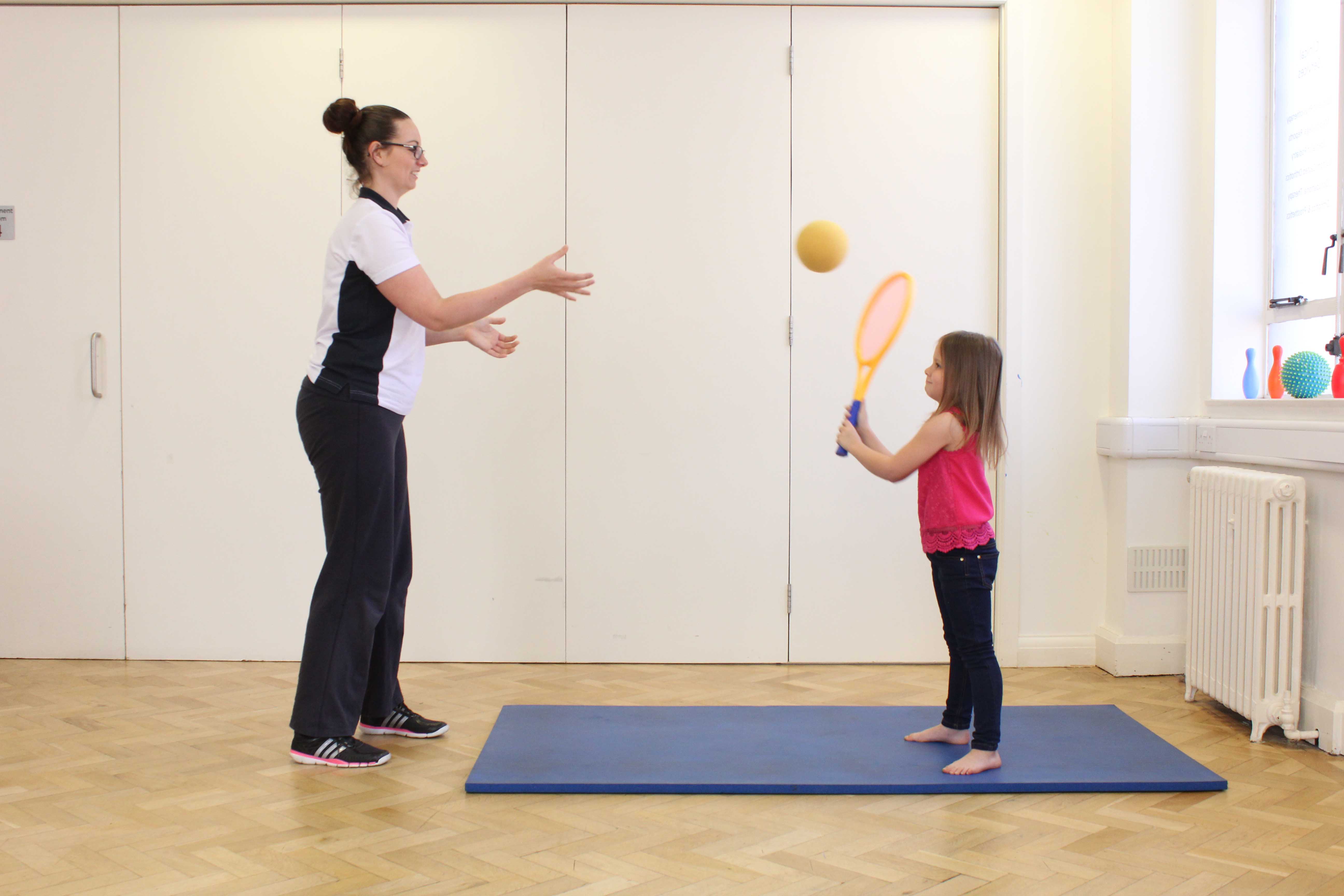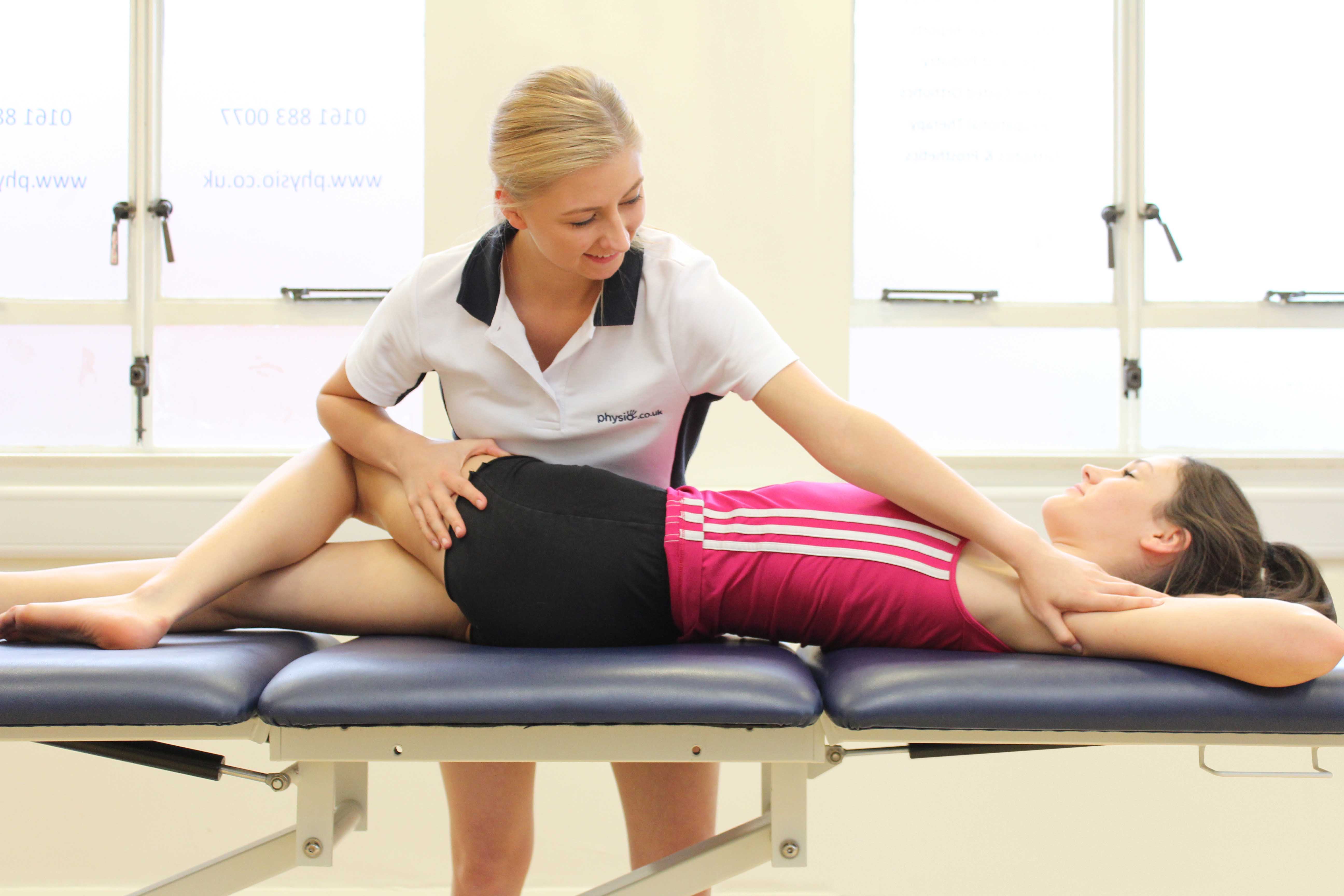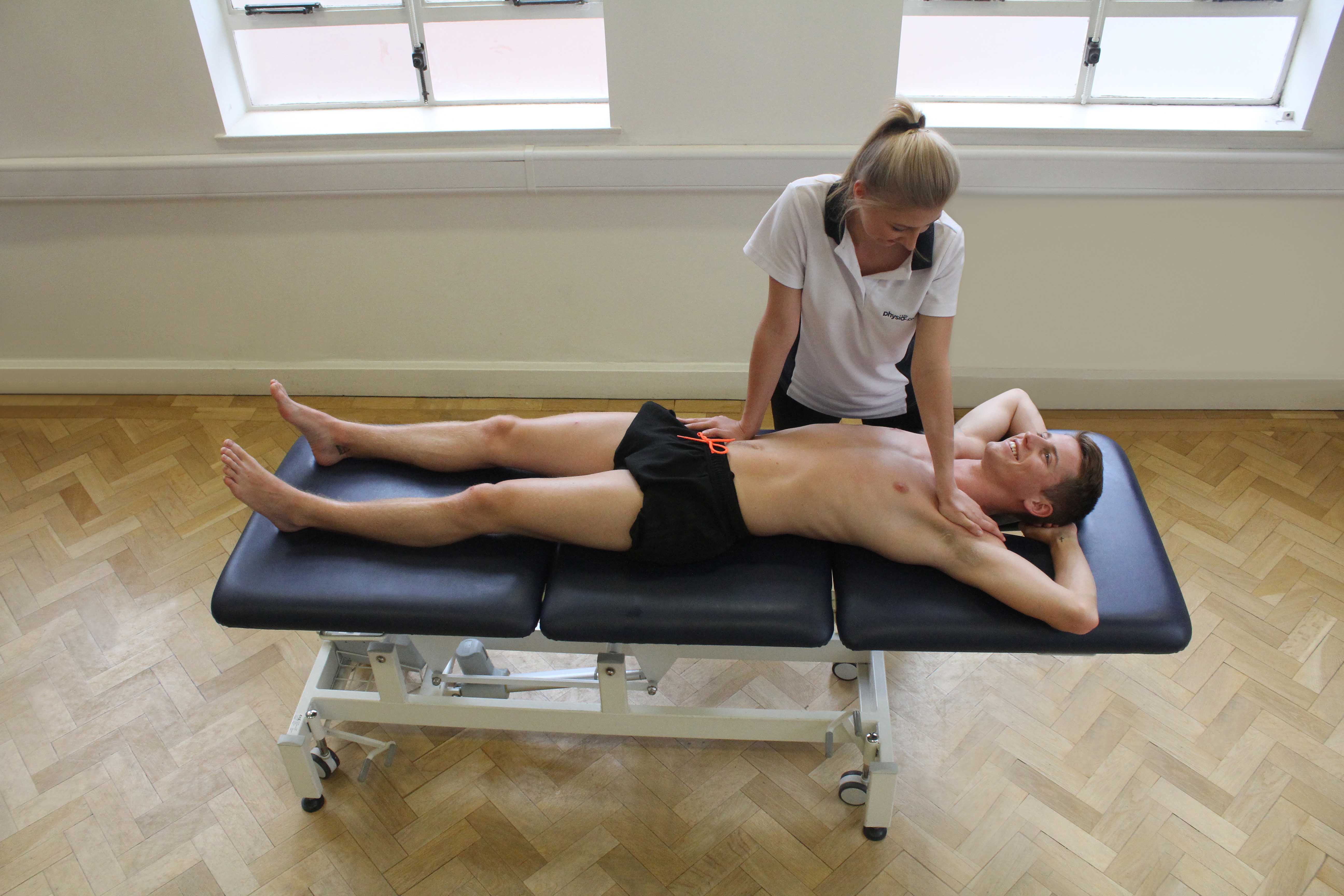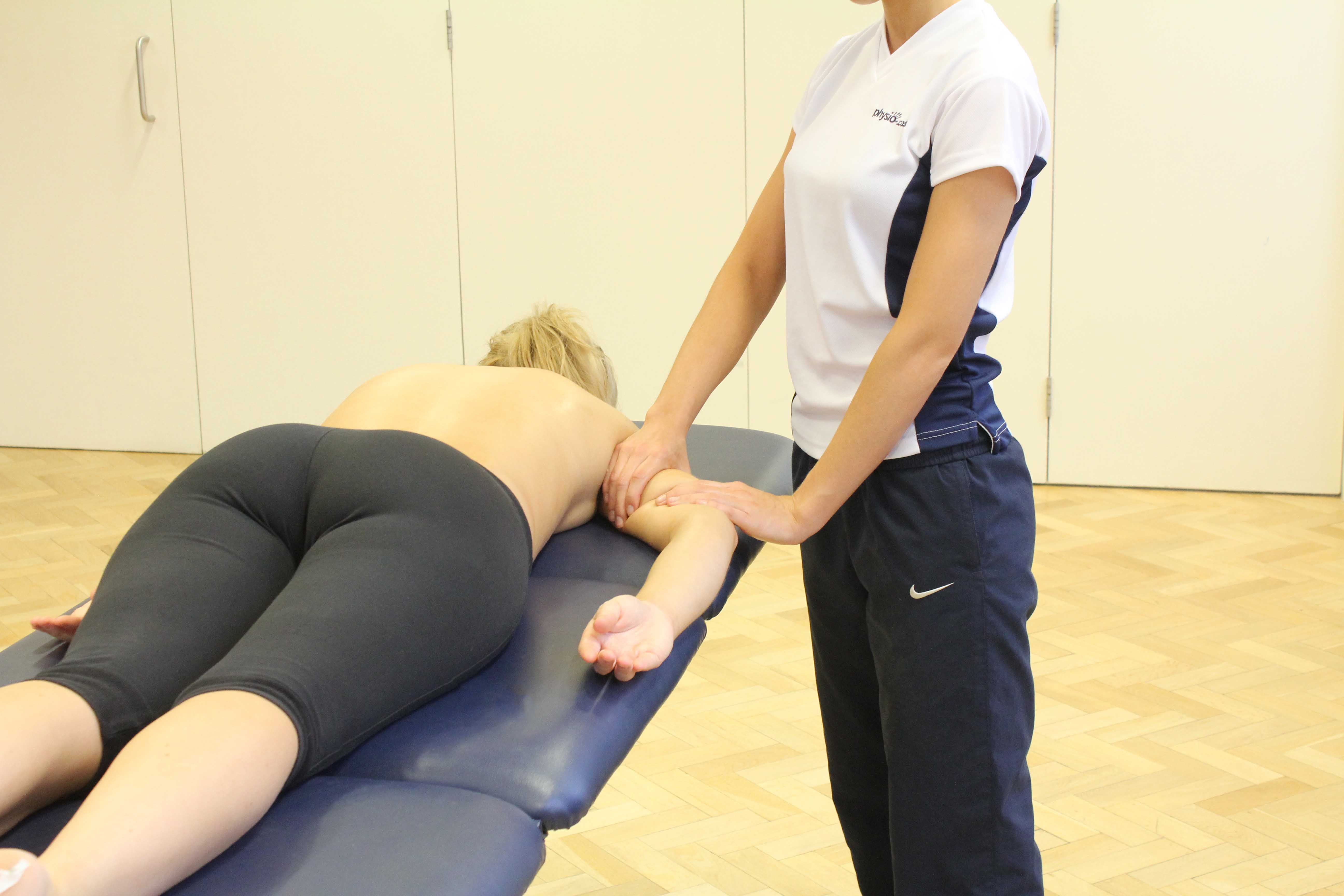What is costochondritis?
Costochondritis (or Tietze’s syndrome) is inflammation of the joint between one of the ribs and the breastbone (sternum). Physiotherapy can successfully resolve symptoms of costochondritis.
 Above: Passive stretch applied to the chest muscles by specialist therapist
Above: Passive stretch applied to the chest muscles by specialist therapistHow does costochondritis happen?
Costochondritis is commonly caused by a direct blow to the joint between the rib and breastbone. This can occur during tackling in contact sports or if hit in the chest in ball sports. Costochondritis can also be caused by excessive ‘wear-and-tear’ of the joint. This can occur in individuals that perform activities that require a lot of trunk and rib cage rotation.
 Above: Soft tissue massage applied to the chest by an experienced therapist
Above: Soft tissue massage applied to the chest by an experienced therapistHow does costochondritis feel?
Costochondritis causes central chest pain, which is aggravated by activity. The area of the chest around the joint may also be tender to touch.
What are the symptoms of costochondritis?
There are many different symptoms associated with costochondritis. Potential symptoms may include:
What should I do if I have costochondritis?
If you have or suspect you have costochondritis, you should arrange a physiotherapy assessment.
 Above: Progressive strength training for the chest muscles supervised by specialist MSK physiotherapist
Above: Progressive strength training for the chest muscles supervised by specialist MSK physiotherapistPhysiotherapy treatment for costochondritis.
Physiotherapy is very important in the treatment of costochondritis. Initially, your physiotherapist can perform an assessment and diagnose your problem. Following this assessment your physiotherapist will devise a treatment plan. Treatment may involve activity modification, the use of anti-inflammatory medications and electrotherapy treatment. Other treatments include:
What shouldn’t I do if I have costochondritis?
If you have or suspect you have costochondritis, you should not ignore the problem and you should not continue with activity as normal. This may lead to your injury getting worse and prolonging your recovery. You should avoid activities that aggravate your pain.
 Above: Progressive strength training for the chest muscles supervised by specialist MSK physiotherapist
Above: Progressive strength training for the chest muscles supervised by specialist MSK physiotherapistCould there be any long-term effects from costochondritis?
Costochondritis does not produce any long-term effects. Full recovery can, however, take a number of weeks.
To arrange a physiotherapy assessment call Physio.co.uk on 0330 088 7800 or book online.

 0330 088 7800
0330 088 7800

































